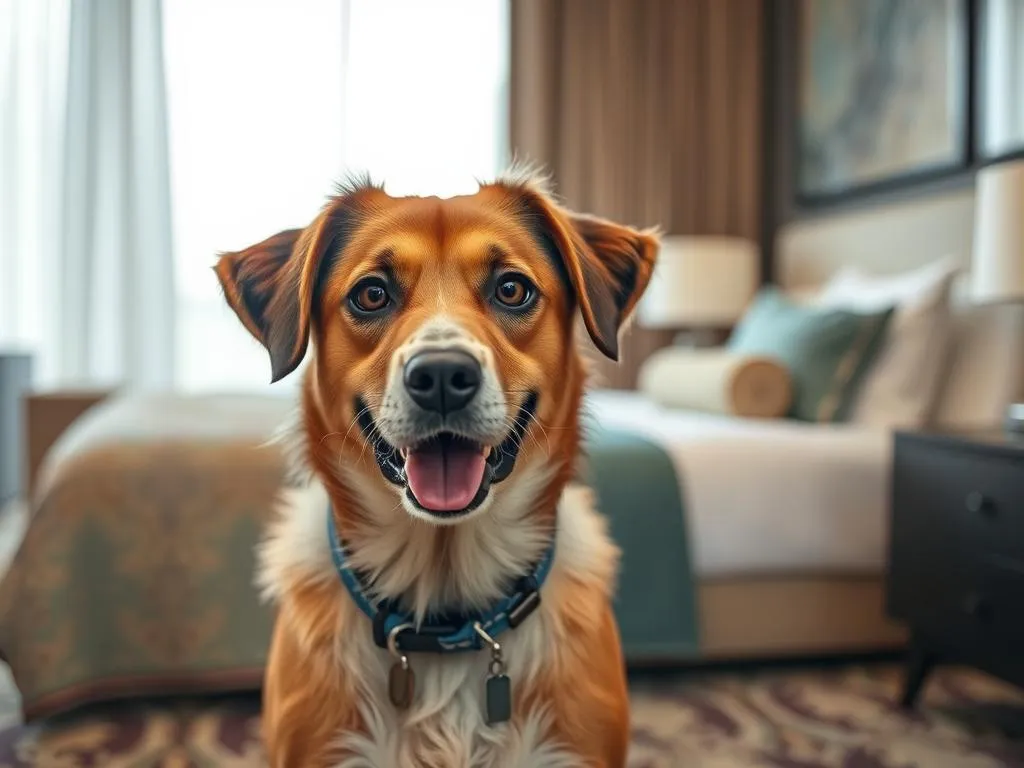
Traveling with your furry friend can be a delightful experience, but it comes with its own set of challenges. Training your dog to behave at hotels is essential not only for your peace of mind but also for the comfort of other guests and the hotel staff. A well-trained dog can enhance your travel experience, allowing you to enjoy your trip without worrying about disruptive behaviors, which can be especially problematic in a hotel setting.
This article will guide you through the essentials of preparing your dog for a hotel stay, covering everything from understanding hotel etiquette to training techniques and post-trip evaluations.
Understanding Hotel Etiquette for Dogs
Hotel Policies
Before embarking on your journey, it’s crucial to familiarize yourself with the hotel’s pet policies. Most hotels have specific rules regarding pets, including weight limits, breed restrictions, and designated areas for walking your dog. Some hotels charge additional fees for pets or require a pet deposit. Checking these policies in advance can save you from unexpected surprises upon arrival.
Common Dog Behaviors in Hotels
Dogs can exhibit various behaviors that may be considered problematic in a hotel environment. Common issues include excessive barking, chewing on furniture, and anxiety due to unfamiliar surroundings. Understanding these behaviors and their triggers will help you address them effectively. A dog’s reaction to a new environment can vary dramatically, so it’s essential to prepare your pet for the unique challenges presented by hotel stays.
Pre-Trip Preparation
Assessing Your Dog’s Temperament
Not every dog is suited for travel, especially if they have a history of anxiety in new environments. Evaluate your dog’s temperament by observing their reactions to various stimuli, such as crowds, loud noises, and unfamiliar settings. If your dog tends to get stressed in new places, it may be beneficial to work on desensitization techniques before your trip.
Essential Supplies for Hotel Stay
Packing the right supplies can make a significant difference in your dog’s comfort during hotel stays. Here’s a list of essentials to include in your travel bag:
- Dog bed: A familiar bed can help your dog feel at home.
- Favorite toys: Bring along a couple of their favorite toys to keep them occupied.
- Food and water bowls: Portable bowls are convenient and can prevent spills.
- Dog food: Stick to your dog’s regular diet to avoid tummy troubles.
- Leash and harness: A sturdy leash is essential for walks.
- Portable training tools: Items like clickers or training treats can be handy.
Training Basics Before the Trip
Teaching your dog fundamental commands is crucial before attempting to stay in a hotel. Commands like “sit,” “stay,” and “quiet” are not just for obedience at home; they can be lifesavers in a hotel situation. Furthermore, socializing your dog with various people and environments will help them adapt better to the unfamiliar hotel atmosphere.
Training Techniques for Hotel Behavior
Positive Reinforcement Training
One of the most effective methods for training your dog to behave at hotels is positive reinforcement. This technique involves rewarding your dog for desired behaviors, which encourages them to repeat those actions. Use treats, praise, or playtime as rewards. For example, when your dog sits quietly in the hotel room, immediately reward them to reinforce that calm behavior.
Desensitization to Hotel Environments
Desensitization is a powerful tool to help your dog acclimate to hotel-like settings. Start by role-playing hotel situations at home. Play recordings of hotel noises such as door slams, elevators, and people talking. Gradually increase the volume while rewarding your dog for remaining calm. This practice will help reduce anxiety when they are in an unfamiliar hotel environment.
Practicing Commands in New Locations
Training your dog in diverse environments is essential for their adaptability. Take your dog to local parks, pet-friendly cafes, or even nearby hotels to practice commands. This exposure will help them learn to obey commands despite distractions. The more comfortable your dog is in various settings, the more likely they will behave well in a hotel.
Handling Challenges During Hotel Stays
Managing Barking and Noise
Excessive barking can be a significant issue in a hotel, disturbing other guests and potentially leading to complaints. To manage barking, it’s essential to identify what triggers this behavior. Use desensitization exercises to help your dog get used to the sounds of the hotel. For example, play recordings of other dogs barking or hotel noises while rewarding your dog for staying quiet.
Dealing with Separation Anxiety
Separation anxiety can occur when dogs are left alone in unfamiliar settings. Signs may include whining, pacing, or destructive behavior. To alleviate anxiety, practice short separations at home, gradually increasing the time you leave your dog alone. Create a comforting environment in the hotel room with familiar items like their bed or toys to help them feel secure.
Encouraging Calm Behavior
Promoting calm behavior during your hotel stay is essential for a pleasant experience. Set up a cozy space for your dog in the hotel room, incorporating their bed and toys. Engage in calming activities like gentle petting or playing soft music to create a relaxing atmosphere. The goal is to help your dog associate the hotel with calm and comfort rather than excitement or anxiety.
After Your Stay
Evaluating Your Dog’s Performance
After your hotel stay, take some time to reflect on your dog’s behavior. Did they respond well to commands? Were there any problematic behaviors? Keeping a journal of your observations can be incredibly helpful for future trips. Note any triggers or stressors that arose, as this information can guide your training for subsequent travels.
Reinforcement Training Post-Trip
Training doesn’t stop once you return home. Reinforce the positive behaviors you observed during your hotel stay with continued training sessions. Celebrate successes, no matter how small, and address any issues that arose. Consistency is key; maintaining a regular training routine will help solidify good behavior in various environments.
Conclusion
Training your dog to behave at hotels is a multifaceted process that requires preparation, training, and ongoing evaluation. By understanding hotel etiquette, preparing adequately, and employing effective training techniques, you can ensure a smooth and enjoyable experience for both you and your dog. Remember that every dog is unique, and patience is essential during this process. With consistent training and positive reinforcement, you can create a travel companion who is well-mannered and ready to explore the world with you. Happy travels!









